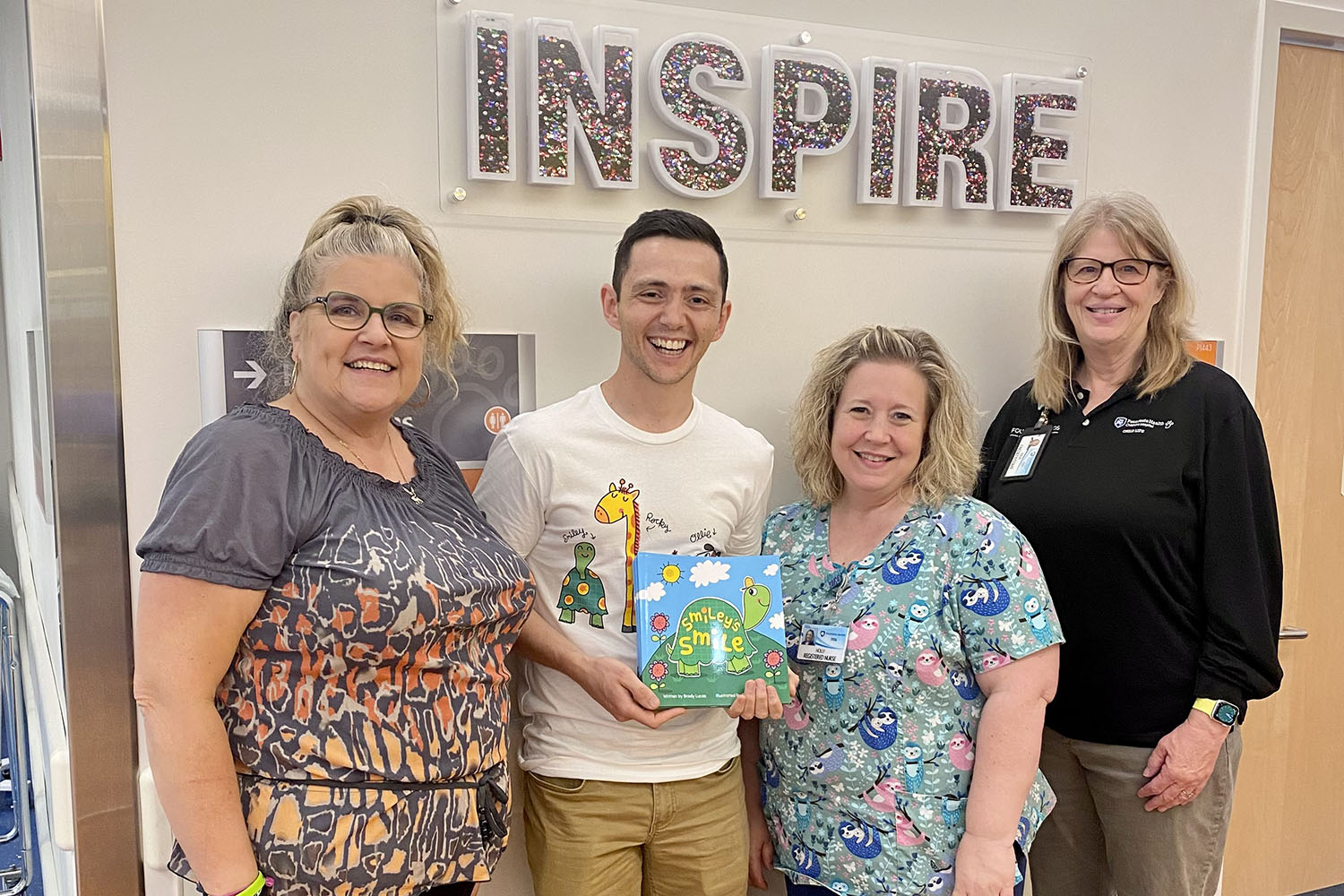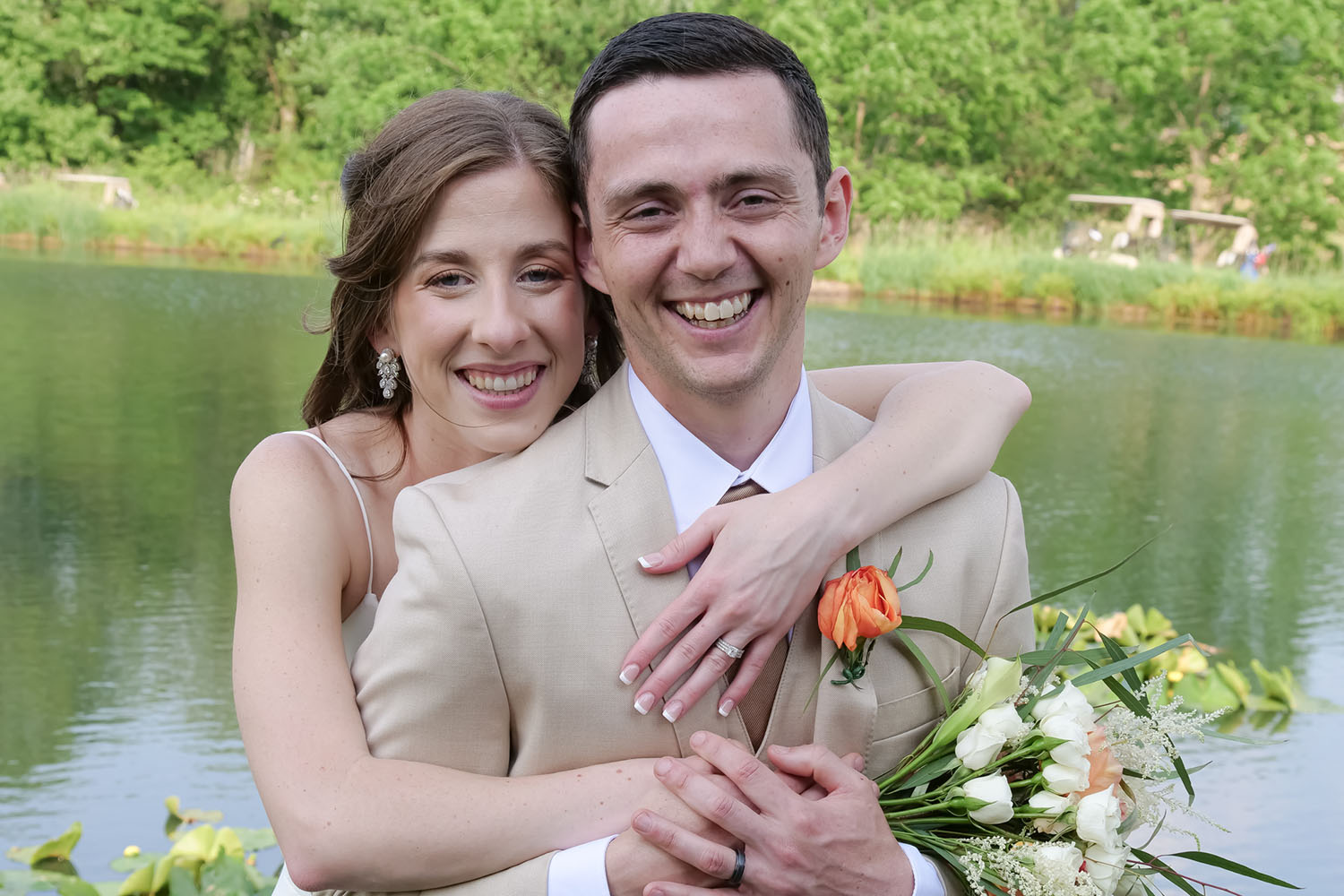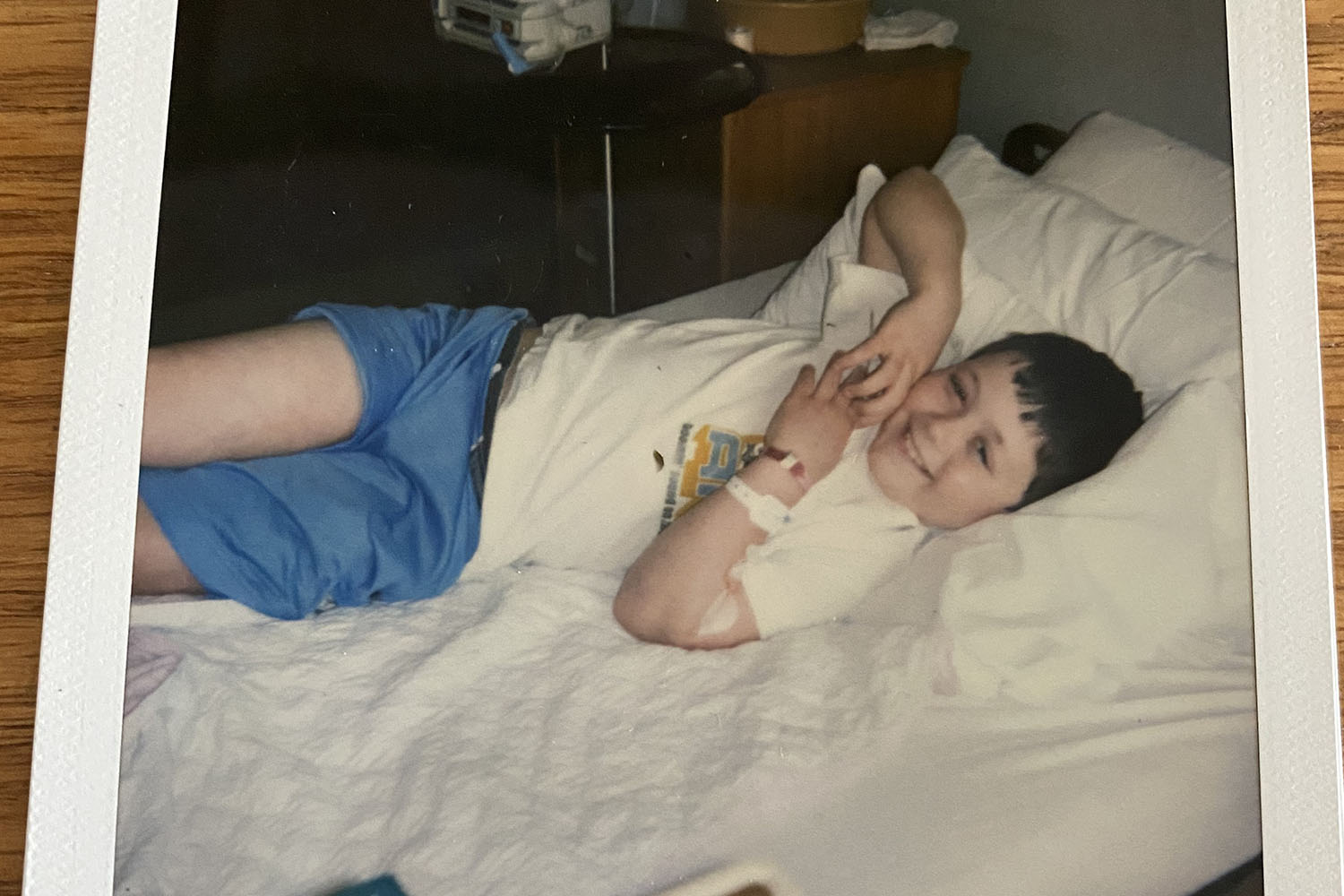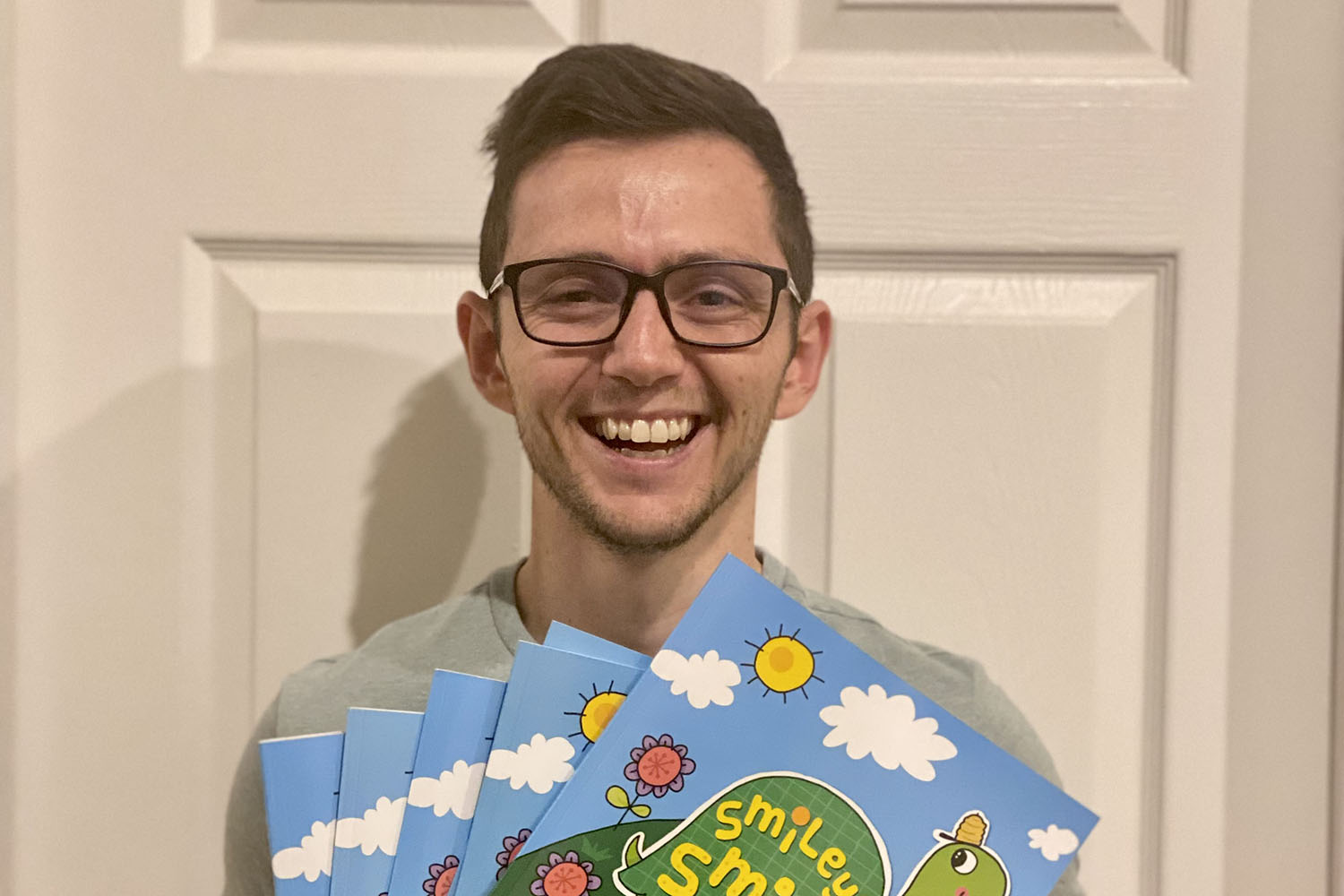BRADY LUCAS HAS UNDERGONE TREATMENT for acute lymphoblastic leukemia (ALL) twice, first at age 8 and again at 14. Treatment for his initial diagnosis included more than three years of chemotherapy and radiation, but when the cancer returned, doctors put Lucas on a different treatment plan. After four days of chemotherapy and a day of rest—but no radiation—he received a bone marrow transplant from his younger brother on Feb. 2, 2011, at Penn State Health Milton S. Hershey Medical Center in Hershey, Pennsylvania. He was the first child in the country to get this regimen.
Lucas, now 27, still deals with some long-term effects, including portal hypertension, liver fibrosis and an enlarged spleen, and his white blood cell and platelet counts remain low. Still, he’s optimistic about the future and grateful to be doing so well 13 years after his precedent-setting transplant.

Photo courtesy of Brady Lucas
Now married and living near Seattle, Lucas works as an associate director of philanthropy at the University of Washington. He’s the author of a children’s book about cancer, Smiley’s Smiles.
We talked recently with Lucas about his experience as a young cancer patient and finding the resources that helped him during and after treatment.
CT: Tell us about your experience.
LUCAS: The big thing I like to focus on is the mental impact of childhood cancer. You ring a bell to signify the end of treatment, and what’s next? You were in fight-or-flight mode for so long [that] after you’re done, you kind of have a “holy crap” moment: Now I have my life back again. How do I go back to school? How do I talk about cancer in my relationships?
It took me about 11 years to start talking to a psychologist after I finished treatment. I highly recommend it. Talk about the problems because so much of it harbors in your life that you don’t even realize the impact.

Photo courtesy of Brady Lucas
CT: What do you wish you had known as a boy? What do you wish you had been told?
LUCAS: I don’t have to be this superhero who does everything in the world that is possible, and to give myself grace in the process as well, that I’m still a human being at the end of the day. One of the things I worked through a lot is that survivor’s guilt. You’re doing things essentially because you survived, and friends in similar situations didn’t. I think if I had addressed some of that earlier, I could have gotten past the hump. But now I have gotten past it, it’s just so much more freeing.
CT: What do you want children and young people living with cancer to know?
LUCAS: Parents shouldn’t shy away from using the word cancer. [Don’t] feel afraid to talk to a kid about what cancer is because the reality is it’s going to be here for a while. I really want parents to make sure that they’re talking the realities of the situation.
Kids are very smart, and a kid wants some sense of control despite not having control in the majority of situations. If there are opportunities for a child to make a decision about a meal for the week or about one of their treatments, whether they get the treatment in pill form or syringe form or IV, that goes such a far way.

Photo courtesy of Brady Lucas
There are resources like child life therapists, art therapy and music therapy. They are just as important as the doctors and nurses in this. It’s not just that you’re treating a disease, you’re treating a child who is developing at a normal rate hopefully. They’re going to need that survivorship care and those resources long term. How do you empower a child to be part of their health care experience long term? That starts from the beginning [feeling] involved and engaged.
We need to get better at the nutrition aspect of childhood cancer. We shouldn’t feel guilty for having a kid eat vegetables and fruits and high-quality fats and meats and things like that during their treatment, instead of just giving them pizza and chicken nuggets or slushies or high-sugar [foods]. We shouldn’t shy away from providing that advice to parents and kids: If you eat healthier now, you may have a better outcome with side effects long term.
This interview has been edited and condensed for clarity
Cancer Today magazine is free to cancer patients, survivors and caregivers who live in the U.S. Subscribe here to receive four issues per year.





